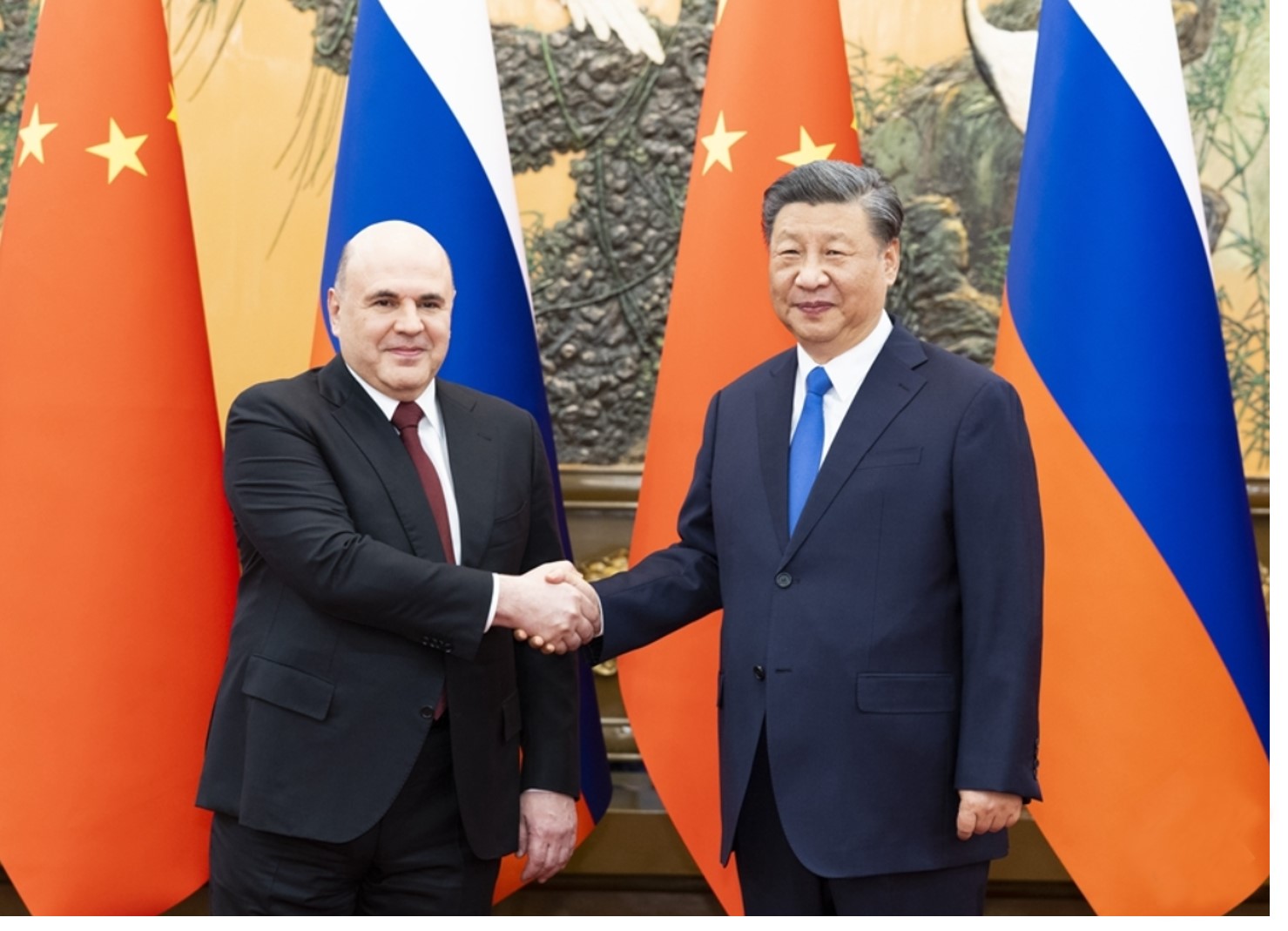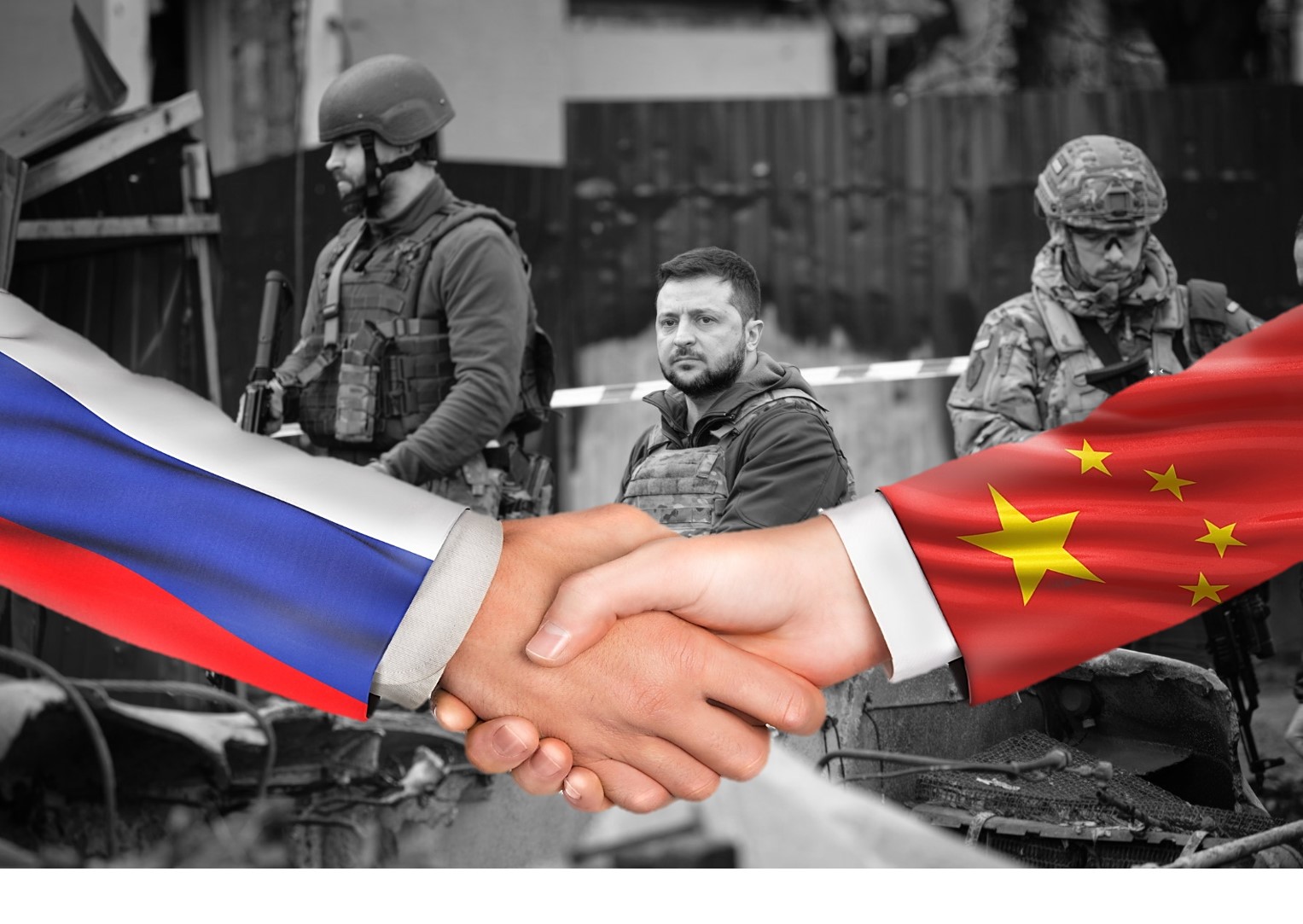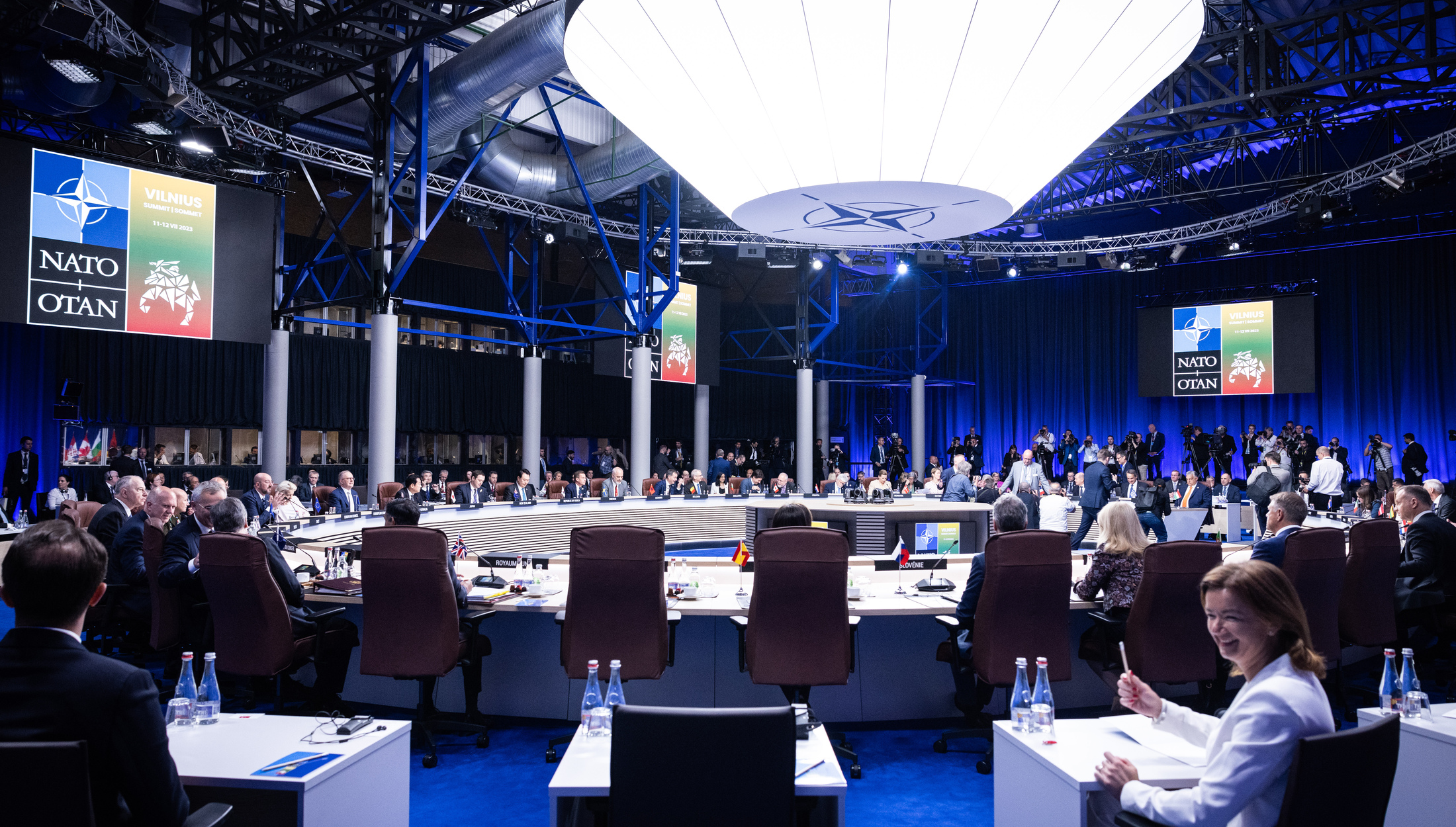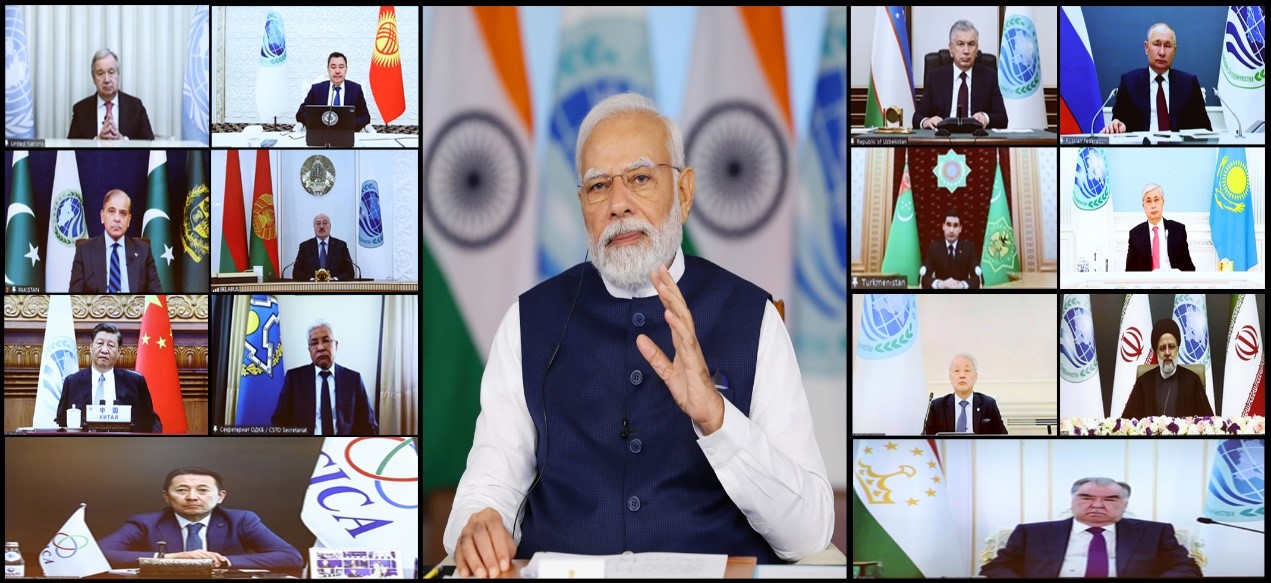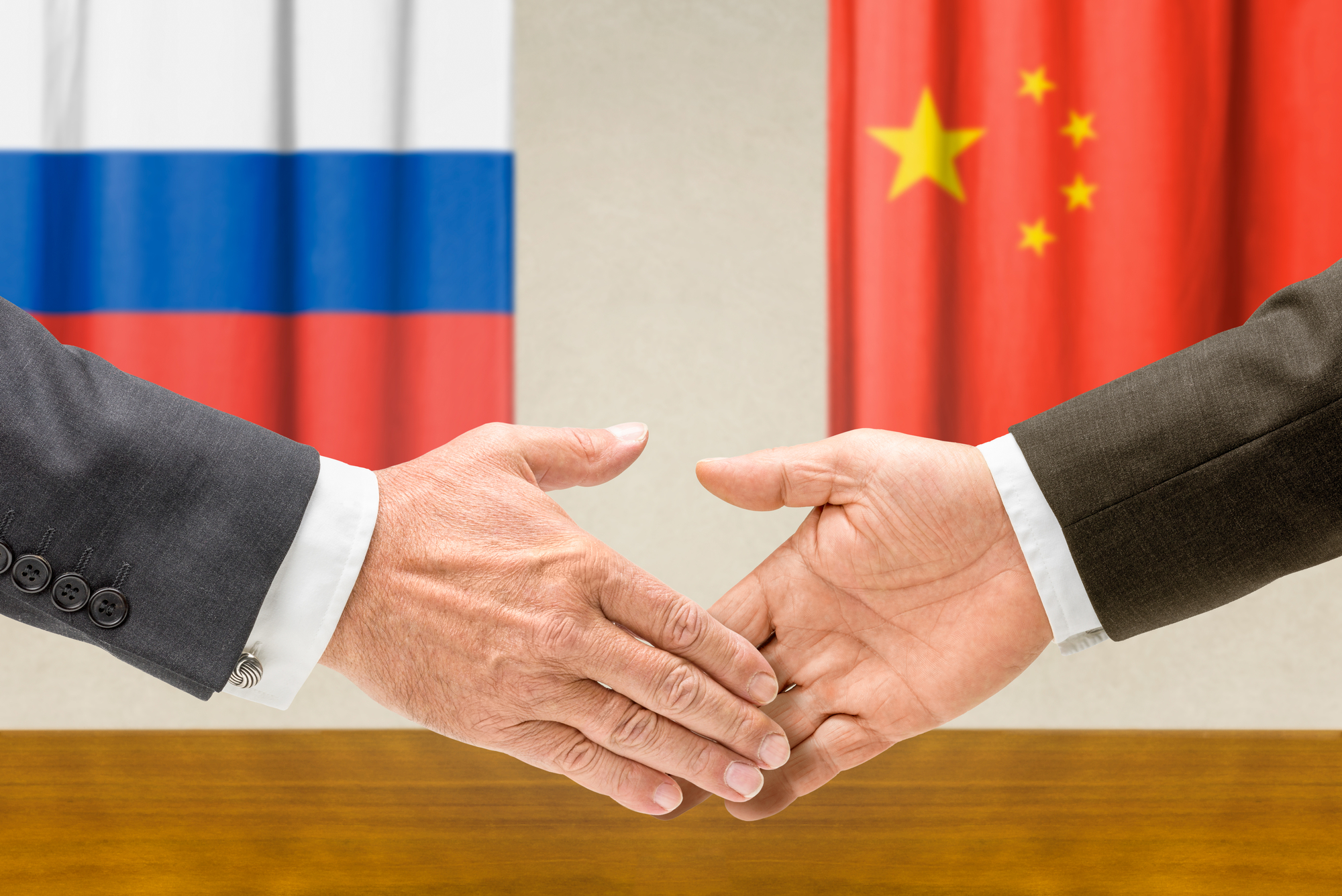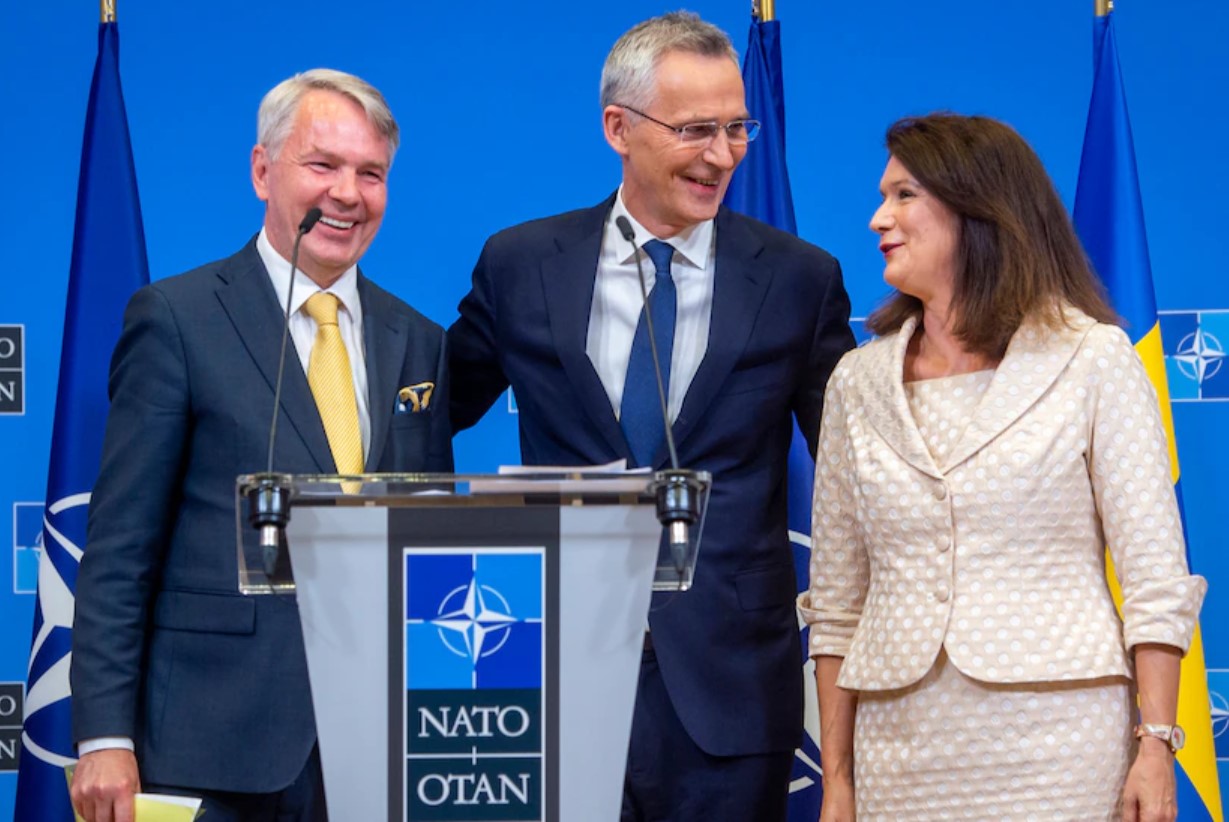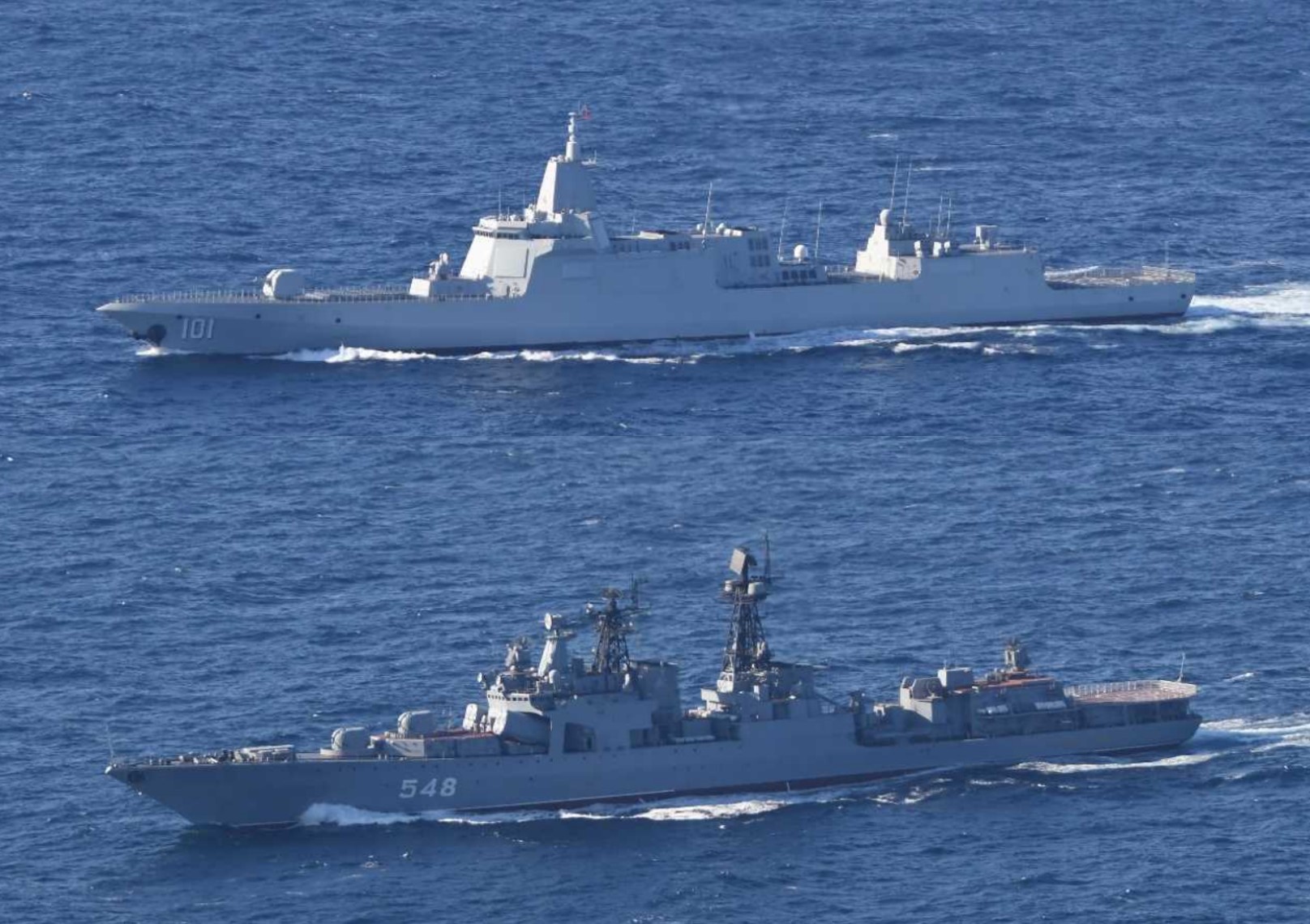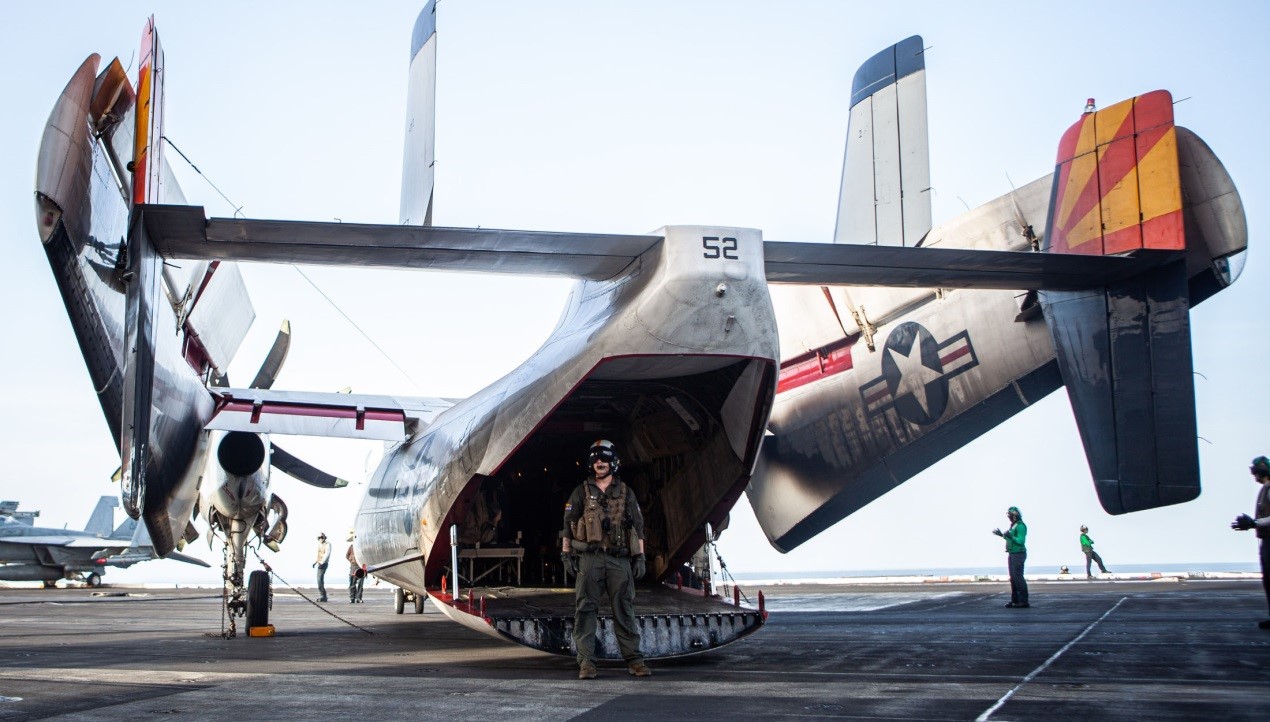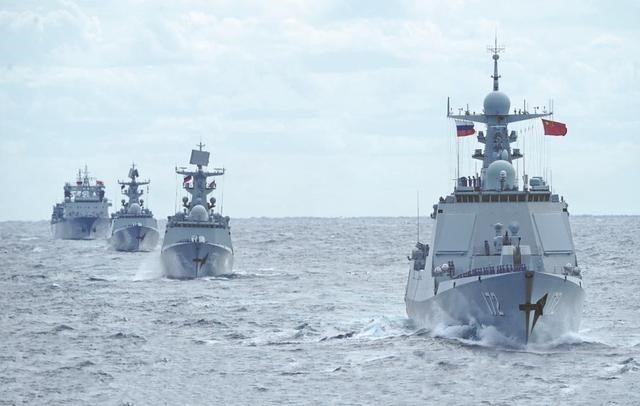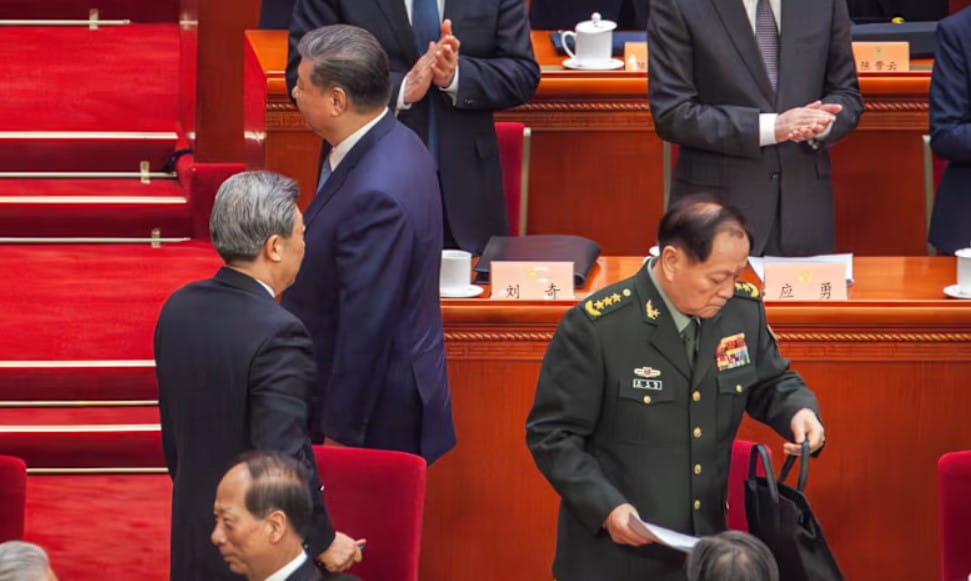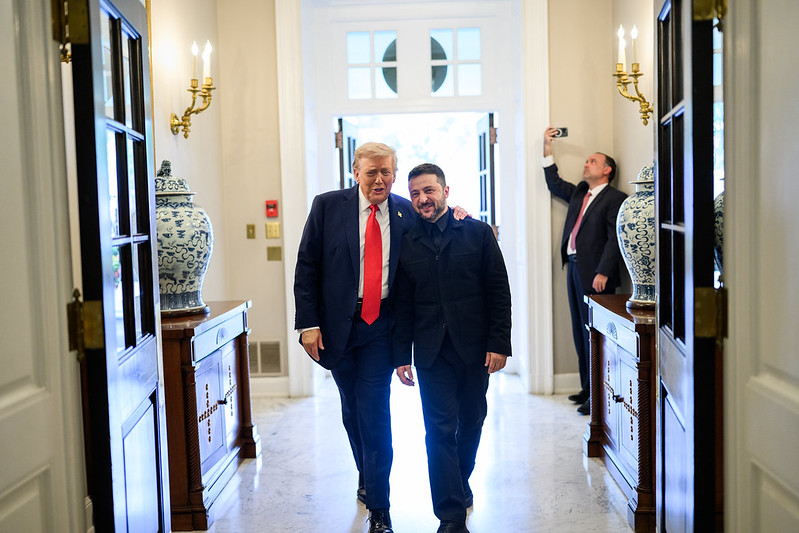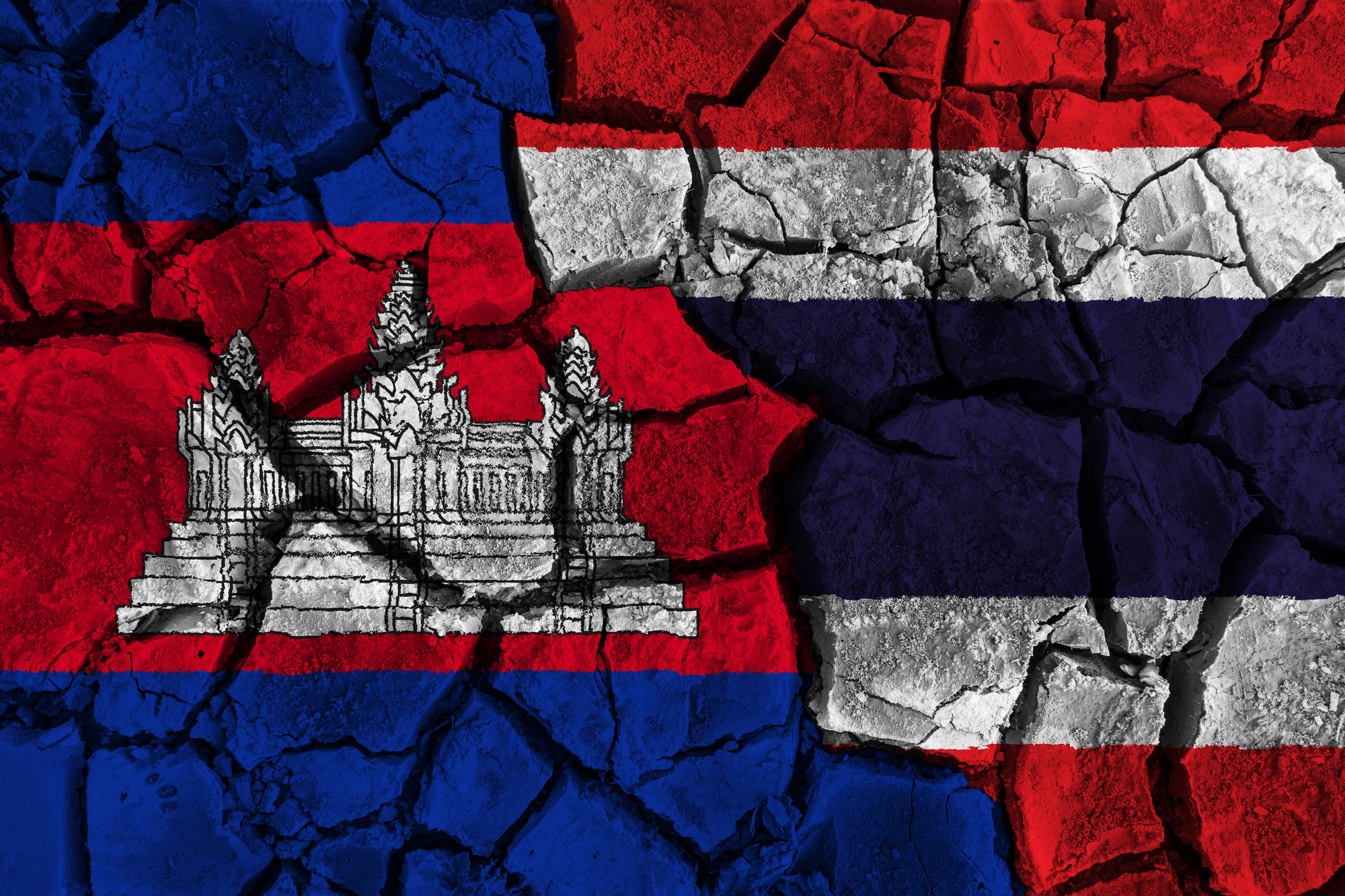Warming China-Russia Relations over the Ukraine War and the Situation In East Asia
Because of the Russia-Ukraine war, the sanctions imposed on Russia by Western countries have substantially deepened Russia’s dependence on China. And this dependence appears to be creating a great asymmetry. Russia needs China more than China needs Russia at this moment. Picture source: PRC.gov, May 24, 2023, PRC.gov, http://www.gwytb.gov.cn/m/headline/202305/t20230525_12537078.htm.
Warming China-Russia Relations over the Ukraine War and the Situation In East Asia
Prospects & Perspectives No. 32
By Chun-wei Ma
Signs of Closer China-Russia Relations
Interactions between China and Russia have become very frequent during the first half of 2023. This began with a visit to Russia by Wang Yi, the director of the Chinese Communist Party Central Committee Foreign Affairs Commission Office, in February. Then, Chinese leader Xi Jinping went to Russia and held a summit with Vladimir Putin in March. This was followed by Chinese Defense Minister Li Shangfu’s meeting with Putin in Moscow in April. Then Chen Wenqing, a member of the Political Bureau of the Communist Party of China (CPC) Central Committee and the head of the Commission for Political and Legal Affairs of the CPC Central Committee, attended the 11th international meeting of high representatives for security issues and delivered a speech in May. The same month, Russian Prime Minister Mikhail Mishustin visited China for a business forum and held a meeting with Xi. China’s special representative for Euro-Asian Affairs Li Hui, visited five countries, including Ukraine and Russia. It is an indisputable fact that the frequency and level of communication between China and Russia is quite high. This, in turn, raises questions about the extent to which such close ties influence the Russia-Ukraine war and the situation in East Asia.
Influence on the Russia-Ukraine War
Most Western countries are hostile toward Russia, especially after Russia’s invasion of Ukraine. Hence, it is difficult for Russia to accept mediation by the West in the ongoing conflict. However, since the outbreak of the Russia-Ukraine War, China has regarded itself as a neutral country between the two belligerents. This position is relatively favored by Putin. In addition, despite U.S. opposition to China creating a military alliance with Russia, Beijing still has much room to maneuver between Russia and Ukraine. In other words, it is easier for China to establish a new communication channel between Russia and Ukraine. As China-Russia relations draw closer, there are more occasions for China to build a bridge between Russia and Ukraine, in ways similar to what China has done for Iran and Saudi Arabia.
Even though there is no end in sight for the Russia-Ukraine war, if communication channels between Russia and Ukraine are built by a third country, it could change the two countries’ behavior from confrontational to more moderate. This could lead to temporarily ceasefires and more communication to avoid misperceptions. Russia has stated that it does not rule out the use of nuclear weapons against Ukraine. However, if China builds better relations with Russia, it could reduce the sense of isolation in Moscow and thereby reduce the possibility that Putin does the unimaginable in the war -- including the use of nuclear weapons.
Conversely, the more China supports Russia, the longer the war is expected to last. If China wants to exert influence on Russia, it must give something that Russia needs. For example, when the Russian prime minister visited China, Beijing revealed its willing to expand trade with Russia, which directly reduces the impact of the pressure that is being generated by Western sanctions against Russia.
Impact on the situation in East Asia
The border between China and Russia is about 4,000 kilometers long, and both are great powers. This makes these two countries innately distrustful of each other. Russia’s decision to continue to wage war on Ukraine could be a strategic distraction. For China, this removes the threat of Russia from the north and gives Beijing a golden opportunity to increase its domination in East Asia. In fact, the more Western countries boycott Russia, the softer Russian attitudes will become toward China. In order to secure Chinese assistance, Russia must therefore be more accommodating to China.
Russian took part in joint military exercises in East Asia with China this month. Since China is less worried about exposure on its northern front, it can afford to allocate more strategic resources to the Taiwan Strait. The Chinese military is also gradually becoming more aggressive toward the U.S. and its allies in the region, such as South Korea and Japan. With the Russia-Ukraine war likely to remain a stalemate for a period of time, with the West and Russia focusing on the European theater, the international structure in East Asia could face a “strategic vacuum.” This is a positive development for China, which could take advantage of this situation to become a dominant power in East Asia. China’s Navy and Air Force will therefore become a more permanent and muscular presence in the region.
Conclusion
Because of the Russia-Ukraine war, the sanctions imposed on Russia by Western countries have substantially deepened Russia’s dependence on China. And this dependence appears to be creating a great asymmetry. Russia needs China more than China needs Russia at this moment. China has adopted am ostensibly neutral position between Russia in the Ukraine war. It makes China more acceptable to Russia and this allows China to become a third party in the war, giving rise to the possibility that China could act as a channel between Russia and Ukraine. It is difficult to say whether the Russia-Ukraine war can only be resolved with participation by China. However, this still creates an opportunity to reduce the scope of the conflict.
The United States and Europe will keep spending resources to support Ukraine. Meanwhile, Russia is also paying the price for its war. The situation is very beneficial to China, which can use it to strengthen its position in East Asia.
Since the beginning of the Russian-Ukraine War, the Chinese military has expanding its presence in the East China Sea, the Taiwan Strait, and the South China Sea. As long as the Ukraine-Russian war continues, this trend will continue. Chinese power will increase apprehensions among neighboring countries. Tis situation calls for greater vigilance and efforts to strengthen military ties among likeminded countries in the region.
(Dr. Ma is Assistant Professor, Graduated Institute of International Affairs and Strategic Studies, Tamkang University.)


